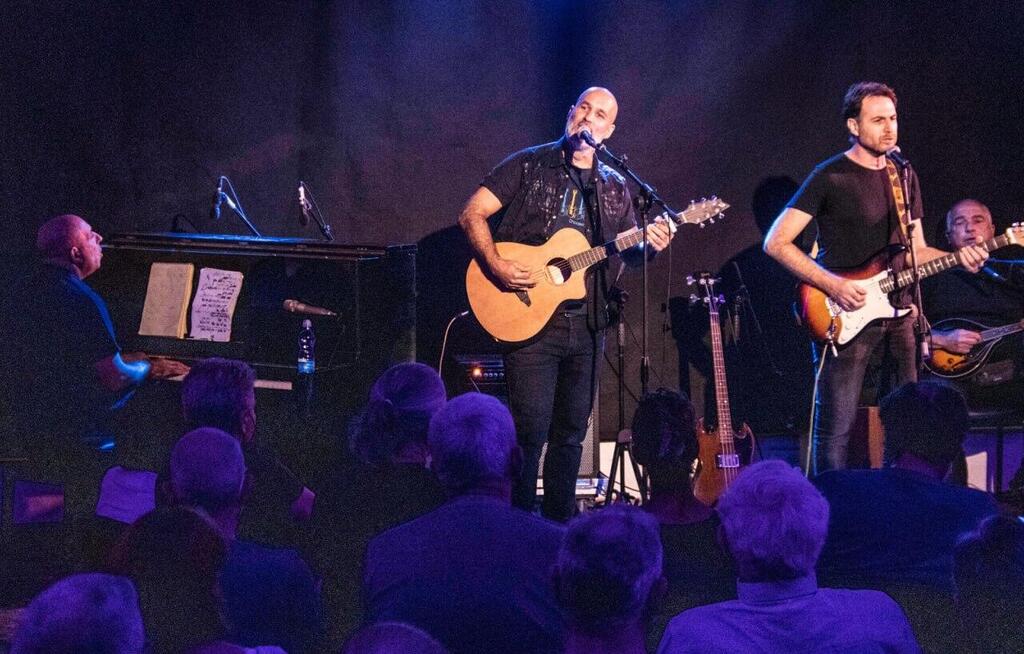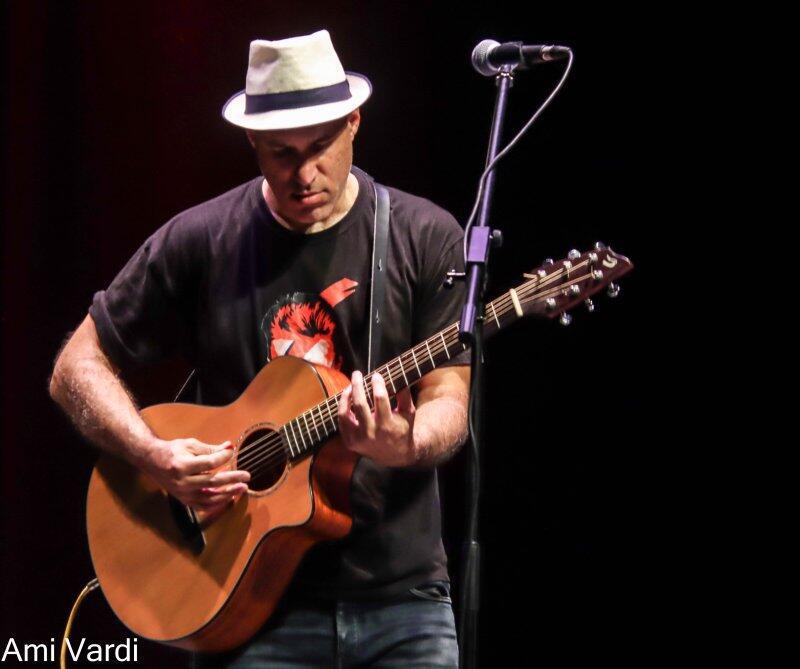Getting your Trinity Audio player ready...
Shahar Cohen can be described as somewhat of a late bloomer. Although he has been playing on some of Israel's most iconic stages, such as the legendary Tel Aviv rock club Roxanne, since he was 17, it wasn't until well into his thirties that the singer-songwriter and guitar virtuoso began finding his footing as a solo artist.
Forging and perfecting his own unique style, which blends his love for rock & roll with ethnic influences drawn from his upbringing in a Mizrahi/Sephardi Jewish household, the 46-year-old father of two juggles between owning a business and leading a family life and pursuing his passion as an artist — a theme that he touches on extensively in his music along with his social activism.
These days Cohen is promoting his latest single Woman in Red off of his upcoming third album which is still in the works. The song, which was released last month, tells the story of an enigmatic lady who Cohen says serves as a Bonnie to his Clyde.
"The song has many interpretations. People ask me if it's fantasy or… you know, a woman in red could be a seductive, reserved and sexy woman which every man, or every married man at least, might fantasize about," Cohen says.
"Some say they thought the song was written about the movie The Woman in Red, others think it's about an affair… but I don't like to interpret my songs because it takes something away from them. All I can say is that this song is, first and foremost, about personal development."
Cohen's artistic journey started to pick up steam in the late 2000s and early 2010s when he began collaborating with Guerrilla Tarbut (Cultural Guerrilla) — a collective of Israeli poets and activists that sought to promote social and political causes through poetry.
This collaboration led to his 2013 debut album Pe Leahcherim (Mouth for Others) which features poems written by members of the activist group, such as Yudit Shahar and Ronny Someck, as well as poems by well-established poets such as David Avidan, which Cohen set to music.
The album's title track is the only original piece written entirely by Cohen.
"Whatever I don't know how to express in my own words, I express through the words of others, and on the other hand, by giving their words melodies [and] arrangements, I become a mouth for them, for them and for the masses," he says.
His second album 20 40 takes a more personal tone, featuring a greater deal of original tunes. However, Cohen says that that shift did not necessarily stem from some kind of a maturing process or finding his own voice as an artist.
"In truth, some of the songs on 20 40 were written before Pe Leahcherim. For the first project, I decided to go with a concept album of poems and protest songs, it didn't really have much room for songs I wrote. I felt that it didn't fit well with the concept. But as I approached my forties… I started recording this album, songs I had lying around since I was 20, so this album is a summary of that period in my life," Cohen says.
"In some ways, besides my own self-expression, this album goes over several stops in life — from the big trip after the army, through love and heartbreaks, there's one song that touches on the birth of my eldest daughter and my father's passing. There is a maturation process there through which I also represent my generation. From a 20-year-old to a person who feels he's reached the midlife phase."
The song Sof (End) with Cohen's backing band Arak Rocks tells about him coping with the loss of his father to illness just months after he welcomed his first child to the world, creating a cathartic story about the cycle of life.
He also described his second studio effort as a return to his roots, incorporating into his music ethnic sounds inspired by his upbringing by parents of Iraqi and Turkish Jewish descent, building off of a trend that started with the song Solo Arak from his first album, creating an intriguing blend of Oriental and Western tones and timbres.
In one of his newer songs, Cohen also experiments with electronic and hip-hop influences, like in Bourgeoisie House, a tongue-in-cheek song about life in a well-off, upper-middle-class neighborhood.
Cohen will host and perform at a charity event in his hometown of Petach Tikva this coming Sunday called Festival Besveder (Festival for a Sweater) — where crowd members pay for entry not with money, but with warm clothes and blankets that are then distributed to homeless people, refugees and prostitution survivors.
The initiative was created in 2009 by Tel Aviv-based activist Lior Levi to raise awareness about the woes of the less fortunate in society and has gone on to feature some of the biggest names in the Israeli music industry down the years, such as Hadag Nahash, Ninet Tayeb, former Eurovision contestants Teapacks, Rami Fortis and many others.
The event will be hosted at the central Israeli city's fringe theater Hadofen Theater, in collaboration with Amsterdam 11 — a social space for artists and creators — and the Petach Tikva Municipality.



